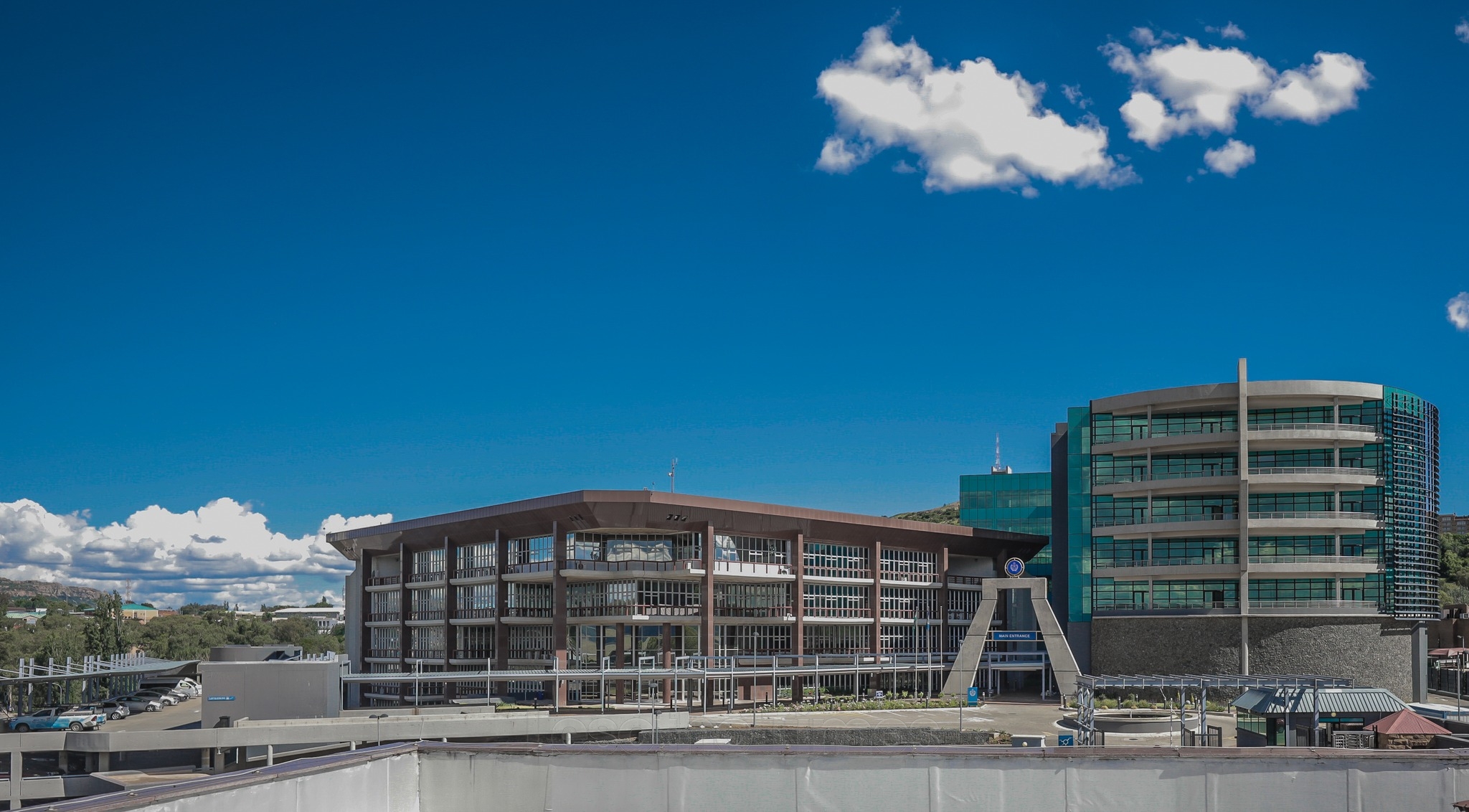
Critical Analysis
- Theme and Strategic Direction
The theme, “Building Strategies for Inclusive Growth,” demonstrates a commitment to economic expansion, job creation, and resilience against global shocks (Ministry of Finance, 2025). The focus on private-sector-led growth aligns with global best practices for sustainable development (World Bank, 2024).
- Macroeconomic Stability and Fiscal Prudence
The budget presents a well-structured plan for fiscal stability, emphasizing revenue mobilization and careful expenditure (IMF, 2025). The anticipated 2.3% GDP surplus is commendable, providing fiscal flexibility (Lesotho Revenue Authority, 2025). However, the heavy reliance on SACU revenues (27.8% of GDP) presents risks, necessitating a strong push for domestic revenue diversification (SACU Secretariat, 2024).
- Sectoral Focus and Investments
Infrastructure Development: Allocating 21.2% of GDP to capital expenditure shows a long-term commitment to growth (Ministry of Public Works, 2025).
Agriculture & Industrialization: Increased investments in irrigation schemes, value chains, and the wool/mohair sectors support economic self-sufficiency (FAO, 2025).
ICT & Digitalization: Significant funding for ICT infrastructure, broadband expansion, and AI policy development aligns with global digital transformation trends (ITU, 2024).
- Employment and Private Sector Growth
The Inclusive Growth Fund (M400 million) aims to lower barriers to credit, promoting SME growth (Central Bank of Lesotho, 2025). A shift towards vocational training and entrepreneurial support addresses the unemployment crisis, currently at 39% for youth (ILO, 2024). However, contractions in manufacturing and mining highlight a lack of immediate economic drivers (Ministry of Trade & Industry, 2025).
- Social Protection and Equity Considerations
The expansion of digital payment systems for social grants is a forward-thinking initiative (World Bank, 2024). Gender-inclusive economic strategies are essential but need clearer implementation roadmaps (UNDP, 2025). While the healthcare and education budgets are substantial, they must ensure equitable distribution and accessibility in rural areas (Ministry of Education, 2025).
Review and Comments
- Economic Diversification Needs Urgency
The economy’s heavy dependence on SACU and water royalties from the LHDA makes it vulnerable to external shocks (Ministry of Water, 2025). Clearer timelines are needed for implementing policies related to domestic industrialization, agribusiness, and exploring alternative export markets (AfDB, 2025).
- Debt Management and Fiscal Risks
Although Lesotho’s debt-to-GDP ratio is stable, the public debt, currently at M23.1 billion, requires careful monitoring (IMF, 2025). Strict enforcement of proposed fiscal rules is necessary to avoid excessive borrowing (Lesotho Revenue Authority, 2025).
- Public Sector Wage Bill
The wage bill, standing at 17.2% of GDP, is considerably high (Ministry of Finance, 2025). While the budget indicates the need for structural reforms, it lacks specific measures or timelines (ILO, 2024).
- Transparency and Implementation Gaps
Poor coordination among ministries has obstructed past reforms aimed at improving the investment climate (Ministry of Planning, 2025). There is a pressing need for clearer accountability mechanisms to enhance public financial management reforms (World Bank, 2024).
- Climate Resilience and Green Energy Expansion
Investments in solar, wind, and hydro energy represent a positive development (UNEP, 2025). However, funding for climate adaptation in agriculture is still lacking (FAO, 2025).
Suggestions for Improvement
- Strengthen Domestic Revenue Generation
- Broaden export-oriented industries beyond just textiles (AfDB, 2025).
- Foster public-private partnerships to draw in foreign direct investment (FDI) in new sectors (World Bank, 2024).
- Introduce progressive tax policies for high-income individuals while providing tax relief for SMEs (Lesotho Revenue Authority, 2025).
- Reduce Wage Bill through Structural Reforms
- Enforce strict hiring regulations in the public sector (Ministry of Finance, 2025).
- Carry out a performance-based review of the workforce to enhance efficiency (ILO, 2024).
- Enhance Industrial Policy and Private Sector Investment
- Accelerate the commissioning of the Ha Belo Industrial Estate and the implementation of SEZ policies (Ministry of Trade & Industry, 2025).
- Fast-track the Investment Climate Action Plan (ICAP) to cut through bureaucratic obstacles (AfDB, 2025).
- Improve Monitoring and Evaluation of Key Projects
- Create an independent oversight body to monitor public investments (Ministry of Planning, 2025).
- Digitize budget execution and reporting to enable real-time tracking of expenditures (World Bank, 2024).
- Expand Green Economy and Sustainability Efforts
- Establish carbon credit markets to draw in climate finance (UNEP, 2025).
- Boost climate-smart agriculture with funding for drought-resistant crops and reforestation initiatives (FAO, 2025).
Final Thoughts
The 2025/26 Budget is ambitious and tackles essential economic priorities. However, effective policy execution and accountability are vital for achieving the intended growth and fiscal sustainability. The government needs to lessen its dependence on SACU, diversify domestic industries, and manage spending wisely to foster a resilient and inclusive economy.
Written by: Adelakun O. Johnson (PhD), Prof. of Economics, Economics Department, National University Of Lesotho, Roma Campus, Lesotho.
Email: johnsonadelakun@gmail.co.m / oj.adelakun@nul.ls
References
African Development Bank (AfDB). (2025). Lesotho Economic Outlook 2025.
Central Bank of Lesotho. (2025). Monetary Policy Report 2025.
Food and Agriculture Organization (FAO). (2025). Agricultural Investment Report.
International Labour Organization (ILO). (2024). Lesotho Labour Market Analysis.
International Monetary Fund (IMF). (2025). Fiscal Stability Report.
Lesotho Ministry of Education. (2025). Annual Budget Report.
Lesotho Ministry of Finance. (2025). Budget Speech 2025/26.
Lesotho Ministry of Planning. (2025). Public Sector Reforms.
Lesotho Ministry of Public Works. (2025). Infrastructure Development Plan.
Lesotho Ministry of Trade & Industry. (2025). Investment & Industrialization Strategy.
Lesotho Ministry of Water. (2025). Water Resource Management Strategy.
Lesotho Revenue Authority. (2025). Taxation & Revenue Collection Report.
Southern African Customs Union (SACU) Secretariat. (2024). Trade and Revenue Statistics.
United Nations Development Programme (UNDP). (2025). Gender-Inclusive Growth Report.
United Nations Environment Programme (UNEP). (2025). Climate Finance & Sustainability Report.
World Bank. (2024). Digital Economy & Development Report.
World Bank. (2024). Public Financial Management Reforms.
International Telecommunication Union (ITU). (2024). ICT & Digital Transformation in Africa.







